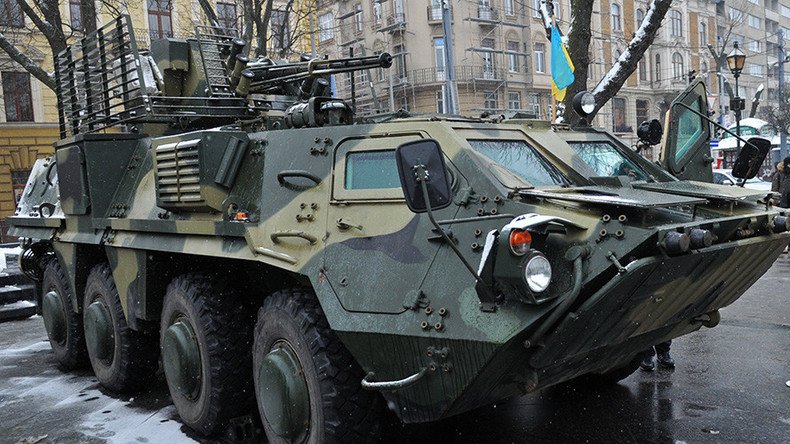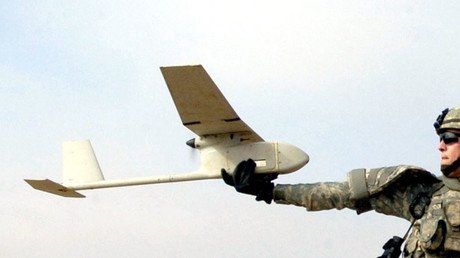Ukraine supplied 88 APCs to Iraq, but only 34 could actually move – inquiry

Only 34 out of 88 armored vehicles supplied by Ukraine to Iraq as part of a 2009 deal were able to move, leaked results of the inspection revealed. The botched contract is still being probed in Kiev, but now it wants to find a Russian role there.
READ MORE: Ukraine has no 'justifiable defense' for non-payment of $3bn debt to Russia - UK court
Ukrainian website ZN.ua obtained a letter, addressed by the former head of Ukrainian state-run weapons exporter, Ukrspetsexport, Aleksandr Kovalenko, to Ukroboronprom defense industry concern in 2014.
In the paper, Kovalenko shared the results of the inspection of the supplied armored vehicles by Ukrainian specialists, who visited Iraq earlier that year.
Of the 88 vehicles delivered, only 56 BTR-4 armored personnel carriers (APC), inspected by experts from the Kharkiv’s Morozov Machine Building Design Bureau (KMDP), were able to start their engines.
And out of those 56 APCs, only 34 were able to actually move, the letter said. The KMDP inspectors also photographed and documented “cracks in the armored shells” of the supplied vehicles.
According to the letter, six cannons, eight machine guns and 11 automatic grenade launchers mounted on the Ukrainian APCs were also rendered inoperable.
“The accumulators on all the vehicles were out of order and require a replacement with more sophisticated ones,” it added, noting that Iraqi forces were forced to purchase batteries from China and install them on the vehicles by themselves.
The deal, worth $475.7 million, according to which Ukraine was to supply 420 BTR-4 units to Iraq, was signed in September 2009. However, in 2013 Iraqi authorities accused Kiev of providing low quality hardware and failing to supply the APCs on schedule.
The next year, Iraq returned 42 out of the 88 delivered armored vehicles due to cracks in their shells.
Iraq is not the only country that has experienced problems with the troubled BTR-4 vehicles supplied by Ukraine.
Last month, Jane’s Defense Weekly reported that the Indonesian Marine Corps (KORMAR) were working on a formal request to relocate the funds allocated to the purchase of Ukrainian APCs after the sample batch of the vehicles had shown itself unfit for service during tests. The outlet reported, citing Indonesian military officials, that the vehicles “trimmed excessively by the bow when operated at full speed in the water.”
As an alternative to the unsatisfactory APCs, KORMAR reportedly eyed buying amphibious vehicles from several other countries, including Russia.
After the deal with Iraq, which was mooted to become the biggest arms supply contract in the history of modern Ukraine, fell apart, a criminal probe was launched by Ukraine’s prosecutor’s office. As a result of the investigation, which is still ongoing, the former head of Ukroboronprom in 2010-11, Dmytro Salamatin, who briefly served as a defense minister in the government of Victor Yanukovich, was charged with money laundering in connection with the case. The investigation found that Salamatin had funneled some $30 million, set aside for legal and consultancy fees under the deal, to third parties.
While the deal had been negotiated between Ukraine and Iraq, the Ukrainian prosecutor’s office appeared to see a “Russian hand” in the disgraced official’s motives, asking the court to provide documents that might reveal a link between Salamatin to Russian “intelligence and secret services,” a Kiev court decision dated March 6 revealed.














